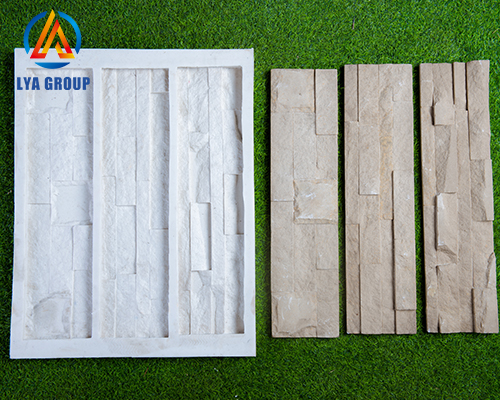Advantages of cultural stone mold are introduced
News 2024年2月27日 144

Mold complexity: Artificial stone molds can be designed to accommodate various levels of complexity. Some molds are relatively simple, featuring basic shapes and textures, while others can be highly intricate and detailed, capturing the nuances of natural stone patterns. The complexity of the mold will depend on the desired final product and the manufacturing capabilities.
Mold lifespan: The lifespan of artificial stone molds can vary depending on factors such as the mold material, frequency of use, and maintenance practices. Some molds can be used for hundreds or even thousands of casts before they need to be replaced or repaired, while others may have a shorter lifespan. Regular inspection and proper care can help prolong the life of the molds.
Mold cost: The cost of artificial stone molds can vary depending on factors such as size, complexity, material, and customization. More intricate molds or those made from higher-quality materials may be more expensive. It’s important to consider the long-term value and durability of the molds when evaluating the cost.
Mold production lead time: The lead time for producing artificial stone molds can vary depending on factors such as the complexity of the design, the availability of materials, and the production capacity of the manufacturer. Custom molds or those with intricate details may require more time to produce compared to standard molds.
Mold maintenance and repair: Regular maintenance is crucial for artificial stone molds to ensure their optimal performance. This includes cleaning the molds after each use, inspecting them for any damage or wear, and addressing any issues promptly. In the event of mold damage or deterioration, repairs or refurbishment may be necessary to restore their functionality.
Mold safety precautions: When working with artificial stone molds, it’s important to follow proper safety precautions. This may include wearing protective equipment such as gloves and goggles, handling mold materials in well-ventilated areas, and following manufacturer guidelines for safe use and disposal of casting materials.
Mold design software: Advanced design software and computer-aided design (CAD) tools are often used in the creation of complex artificial stone molds. These software programs allow designers to create and modify mold designs digitally, enabling precise control over the final product’s shape, texture, and dimensions.
Mold quality control: Quality control measures are important in artificial stone mold production to ensure consistent and high-quality results. This may involve regular inspection of molds for any defects, dimensional accuracy checks, and testing of finished products to ensure they meet the desired standards.